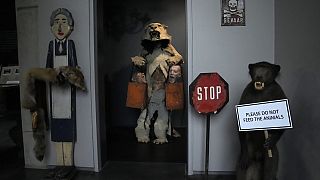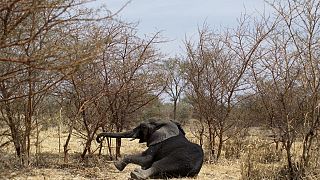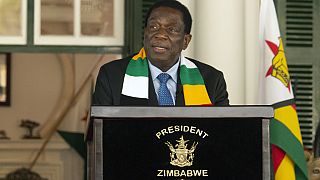Zimbabwe
March 3 marks World Wildlife Day - a United Nations International Day to celebrate all the world's wild animals and plants and the contribution that they make to our lives and the health of the planet.
In Zimbabwe, wildlife populations have been declining during the last 30 years due to consecutive droughts, habitat loss, poaching and sale of wildlife products. In addition, human–wildlife conflict, such as crop-raiding by elephants and livestock lost to carnivorous predators, presents multiple challenges for rural communities.
To address these challenges, the Food and Agriculture Organization of the United Nations (FAO) is working with partners to implement the Sustainable Wildlife Management (SWM) Programme.
In Zimbabwe and three other Southern African countries (Namibia, Botswana, and Zambia) the SWM Programme is working within the Kavango–Zambezi (KaZa) Transfrontier Conservation Area, one of the largest conservation areas in the world .
The SWM Programme encourages equal participation of both women and men in decision-making and the management of Community Conservancies. Women and girls’ contributions to wildlife management and food security is often restricted yet they have a crucial role to play”.
Much of the wildlife lives outside protected areas and they are continuously interacting with rural communities, which can lead to human-wildlife conflict.
To encourage co-existence, it is important that communities derive benefits from their natural resources. In tropical and subtropical regions, where overhunting for wild meat is threatening hundreds of wildlife species with extinction, community-led management is also key.
As wildlife populations decline, many rural communities are being left without food and an income. This situation is becoming more critical as the demand for wild meat grows, particularly in urban areas where it is consumed as a luxury or tradition.
The SWM Programme is working with communities and partners to improve wildlife hunting regulations, increase the supply of sustainably produced meat products and farmed fish, empower and strengthen community management, and reduce demand for wild meat in towns and cities.
Conservancies, which give communities ownership and incentives to conserve wildlife.” .”World Wildlife Day is an opportunity to raise awareness about the loss of wildlife and find solutions. This year's theme is ‘Partnerships for Wildlife Conservation'.












02:16
Earth Day: Fighting microfibre pollution one laundry at a time
02:19
In Ghana, an illegal settlement turned a forest reserve into a criminal city
Go to video
Kenya: Belgian nationals plead guilty to smuggling protected ants
02:09
Electric tricycles empower women in rural Zimbabwe
01:50
Solar-Powered Cookers offer sustainable solution in Kenya
05:00
Fatoumata Maiga: A woman leading Mali’s fight for peace